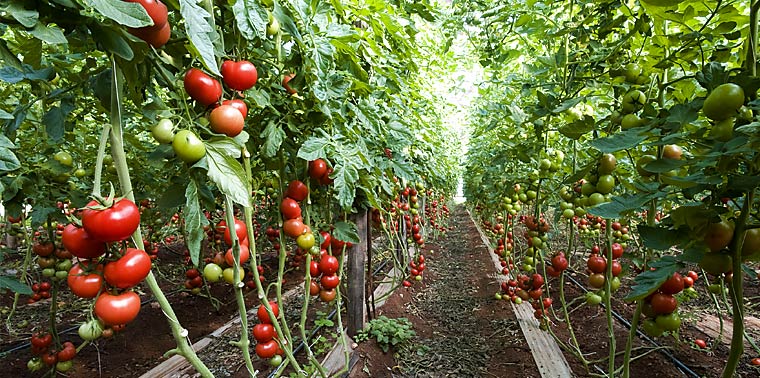December 7, 2012 — Political scientist Robert Paarlberg sparked controversy with an essay in Foreign Policy claiming that organic, local and slow food movements provide the “wrong recipe for helping to feed those who need it most.” What kind of system can achieve global food security while limiting environmental impacts of food production? Seed Magazine invited Paarlberg and ecologist M. Jahi Chappell to debate the topic online. The following excerpts were adapted from the opening round.
M. Jahi Chappell
Postdoctoral Associate and Provost’s Academic Diversity Fellow in Science & Technology Studies,
Cornell University. Currently Assistant Professor of Environmental Science and Justice at Washington State University–Vancouver
“Hunger and food insecurity are rooted in poverty and lack of socioeconomic access to food, not insufficient food production or overpopulation. Alternative agriculture can provide sufficient food in a more sustainable manner than industrial agriculture. Food production has, at best, an indirect relationship with feeding people. Around 78 percent of malnourished children in the developing world live in countries with sufficient national food availabilities. Hunger’s primary cause is widely summarized as poverty, but it would perhaps be more precise to term it a lack of socioeconomic or sociocultural access.
Many tend to agree that the answer to “industrial vs. organic food production” lies somewhere in the middle. I think the answer lies between the two in the same way Philadelphia is between New York City and Los Angeles—much closer to one than the other. I was one of the authors of a 2007 paper that found organic agriculture could produce sufficient food to feed the world. We know that providing education, health and other social support to people, especially women, can dramatically lower hunger, inequality and poverty. Those of us concerned with food security should possibly be more concerned with addressing these issues, issues with little direct relationship to production method per se, most of all.”
Robert Paarlberg
Professor of Political Science, Wellesley College
“Hunger is indeed rooted in poverty. Nonetheless, a majority of all hunger still comes from inadequate food production—because most of the world’s poor and hungry are farmers. Hundreds of millions in Africa and South Asia still lack the things farmers elsewhere have used to escape poverty: They lack seed varieties improved by scientific crop breeding, they have no irrigation and they use almost no chemical fertilizers.
China and India managed to overcome their hunger problems by making investments in the productivity of small farmers. Hunger is worsening in Africa because farmers there have not yet experienced a comparable upgrade in farming techniques.
Organic techniques and agroecology have long been available, yet we have no example of any modern society feeding itself adequately using only these methods. Advocates for agroecology can point to a long list of techniques that work well (biological controls for pests, crop rotations and manuring, mulching and water-harvesting), yet these techniques always work best when combined with scientifically improved seed varieties and nitrogen fertilizer.
There are no examples today of well-fed societies relying only on organic methods. Europeans and Americans have an abundant food supply precisely because they have rejected organic dogmas.”
This article originally appeared in the Summer 2010 issue of Momentum magazine, Ensia’s predecessor, as “Food Fight.”
Ensia shares solutions-focused stories free of charge through our online magazine and partner media. That means audiences around the world have ready access to stories that can — and do — help them shape a better future. If you value our work, please show your support today.
Yes, I'll support Ensia!
